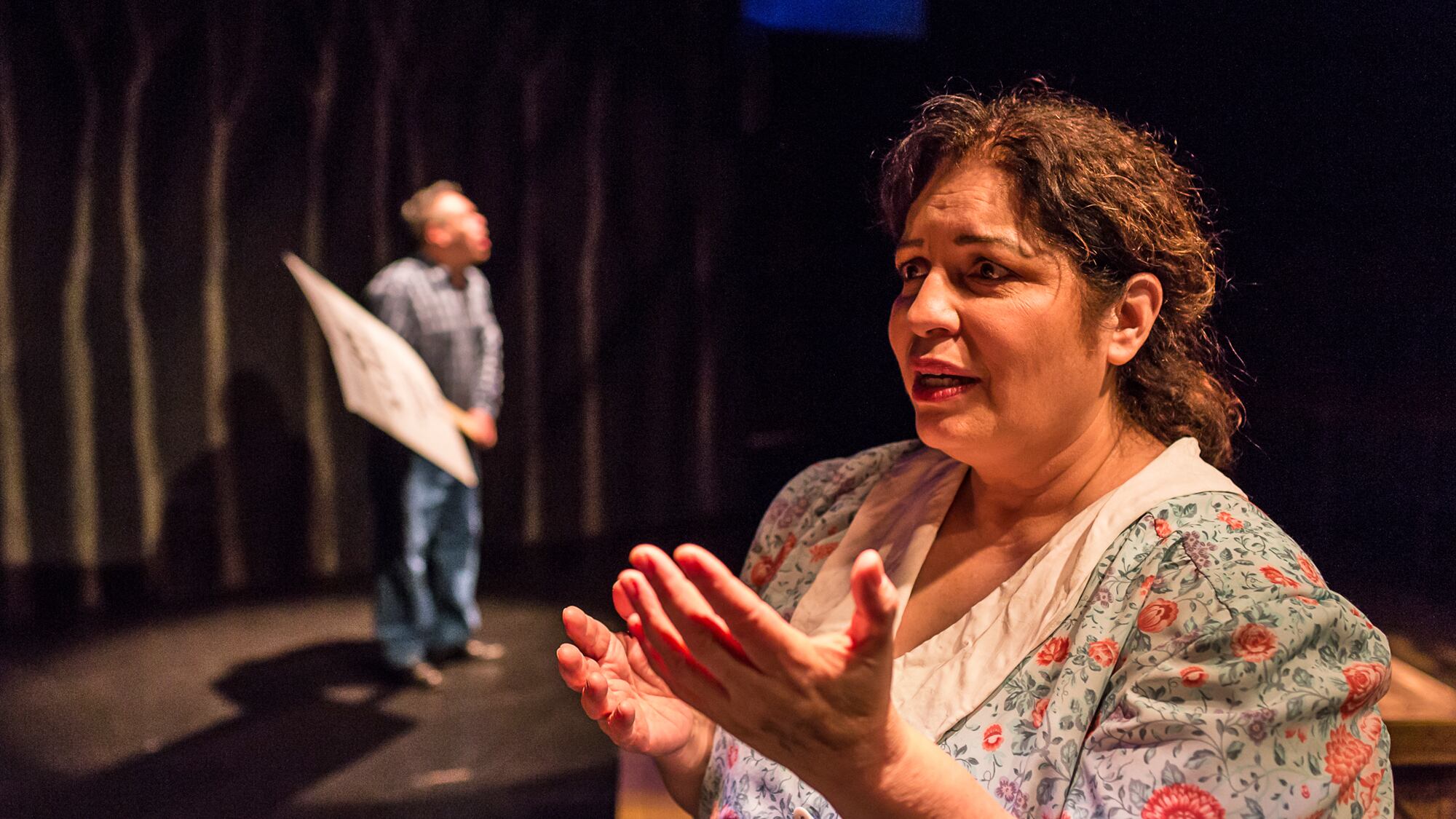The set of Milagro Theatre’s gripping production of Watsonville: Some Place Not Here is typical—tables, chairs and plenty of space for characters to pace about and pour their hearts out to the audience—save for a massive wooden backdrop emblazoned with images of towering, unshakable oak trees.
Those trees are an appropriate metaphor for Watsonville, a story about people exhibiting indomitable strength under trying circumstances. The drama’s heroines and heroes endure bigotry, starvation and a natural disaster. They suffer the consequence of laws turned into weapons by greedy and abusive men. But Watsonville is ultimately a testament to the characters’ wit, friendship and persevering willpower.

The play stars Bunnie Rivera as Dolores, a Mexican cannery worker living in Watsonville, Calif., during the ’90s. She is withering under the strain of working hard for little pay and caring for her drunken husband, Don Arturo (Enrique Andrade). The only hope of ensuring her family’s survival, Dolores decides, is to join her fellow cannery workers in ceasing work until demands for a living wage are met.
With the aid of allies like Susana (Rosalie Siler), a physician’s assistant, and Juan (Osvaldo “Ozzie” Gonzalez), a former priest who has renounced his faith, Dolores and the other workers succeed in igniting a strike. The group’s resolve is tested by a supposed comrade, Chente (Feliciano Tencos-Garcia), whose selfishness and sexism threaten to undermine everything the protest aims to achieve. And as the standoff drags on for weeks, months and years, hope begins to fizzle.
Watsonville, an installment in a trilogy of plays by Cherríe Moraga, is based on an actual cannery strike in Watsonville that lasted from 1987 to 1989. While Moraga’s story is set only a decade later, the production is so intense that it feels firmly rooted in the present. The struggles of Dolores and the other workers—including the fearsome Lucha (Patricia Alvitez)—seem particularly poignant in 2018. Director Elizabeth Huffman and her cast bring Moraga’s words to the stage in a way that is both provocative and entertaining.

Huffman doesn’t sugarcoat the plight of the workers. When Lucha and JoJo (Matthew Sepeda) are ruthlessly beaten by racist white attackers in hoodies, rock music blasts through the theater, making the violence feel like a gut punch. And when Lucha seeks new allies to support the strike, she doesn’t just talk—she ascends into the audience and passes out fliers. This makes it nearly impossible to fall into the role of the passive observer.
Watsonville is a call to action. It is also tremendous fun. There are plenty of delightful moments—including when Gonzalez reveals Juan’s romantic fantasies about Che Guevara with contagious relish—and thrillingly mystical scenes. Dolores, for example, comes to believe a local tree houses a healing spirit. Onstage, the tree is symbolized by an ingenious and gorgeous effect: leaves, branches and a trunk projected across a white screen that ripples to create the illusion of a breeze.

The play never explains if the tree spirit is real, or something Dolores dreamed up out of desperation. But the answer doesn’t matter. When Watsonville ends, its characters face an uncertain future, but their belief in their ability to effect change survives. You leave the play filled not with despair but reciting echoes of Lucha’s wonderfully defiant credo: “I don’t think about losing. I think about winning.”
SEE IT: Watsonville is at Milagro Theatre, 525 SE Stark St., milagro.org , 7:30 pm Thursday-Saturday, 2 pm Sunday, through May 26. $27-$32.
